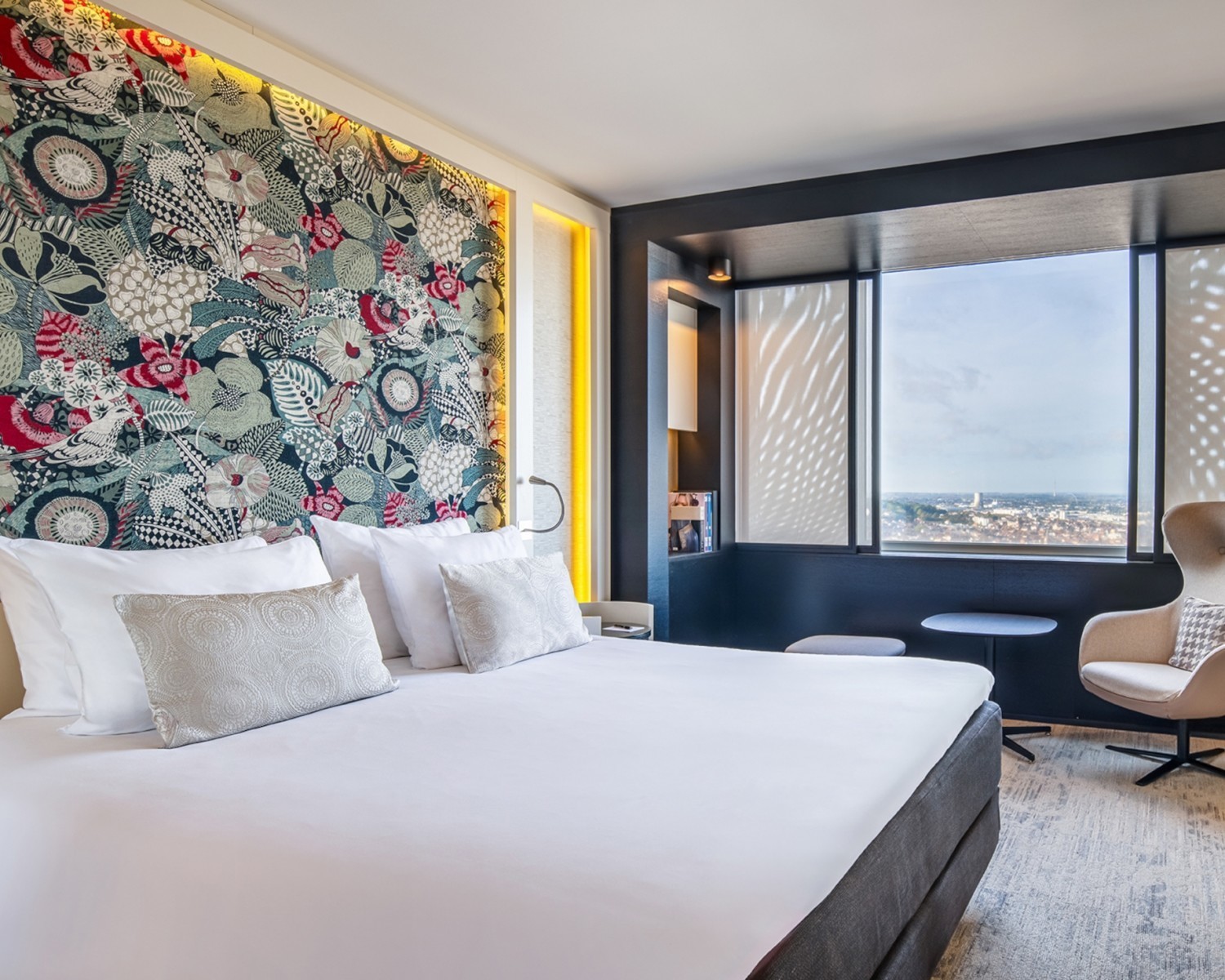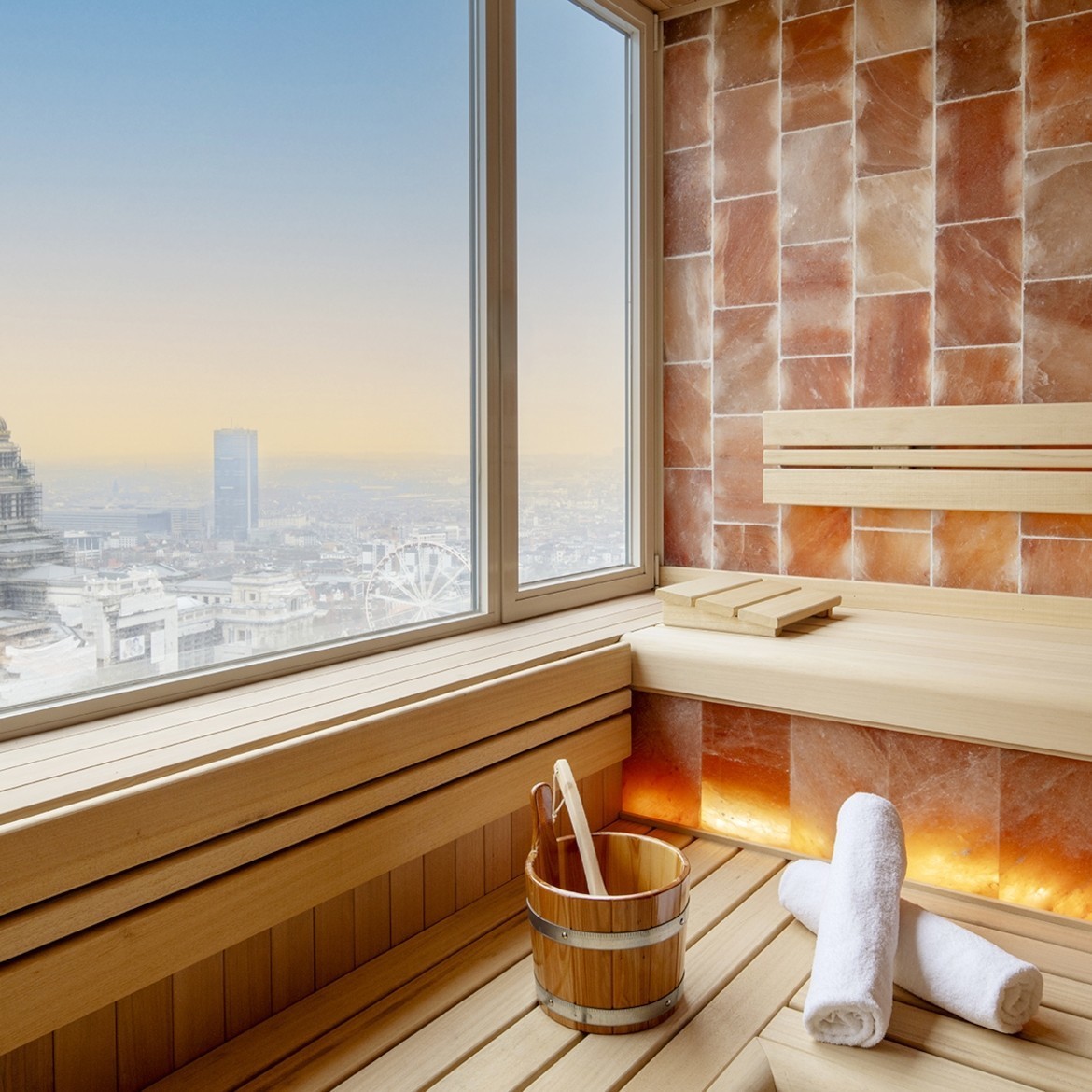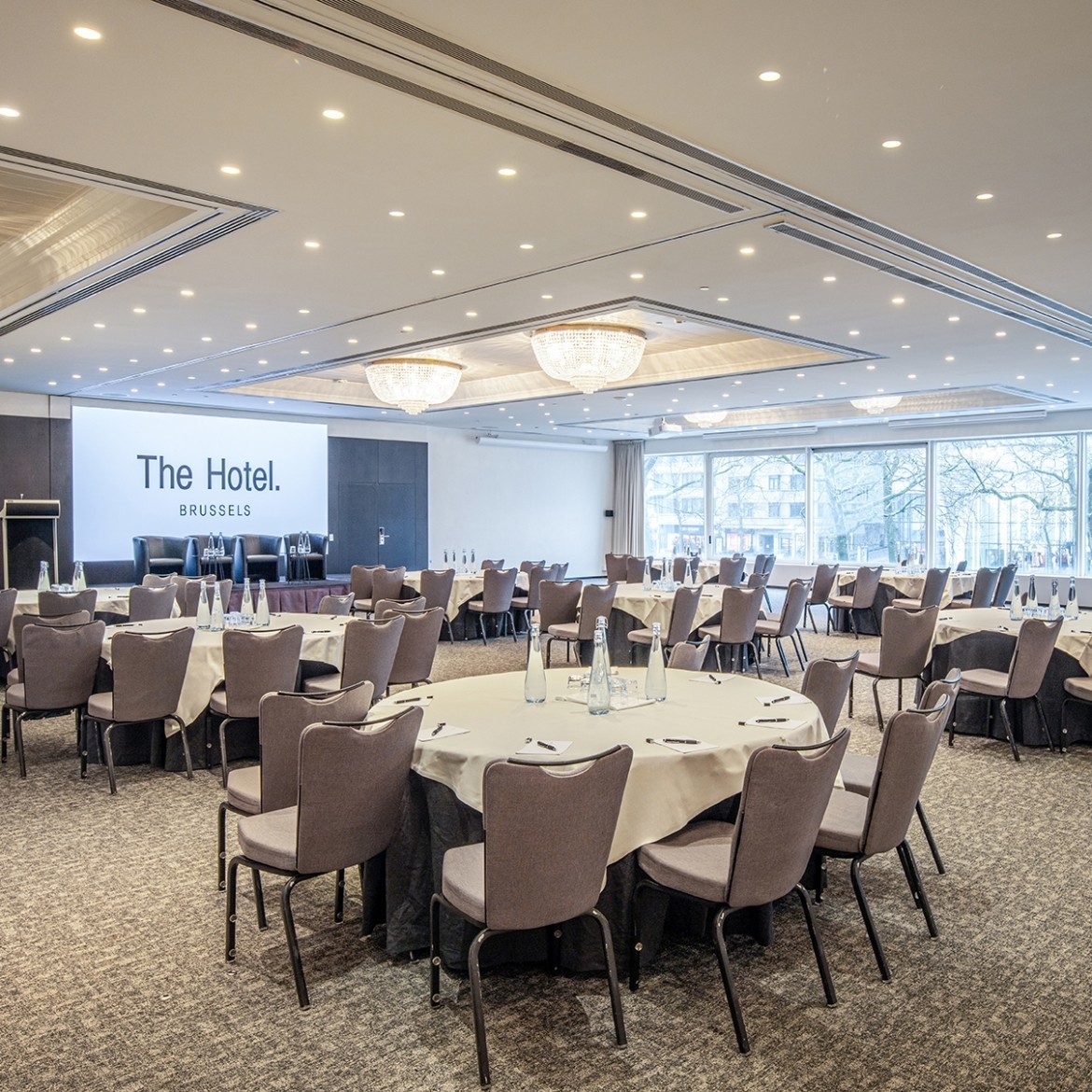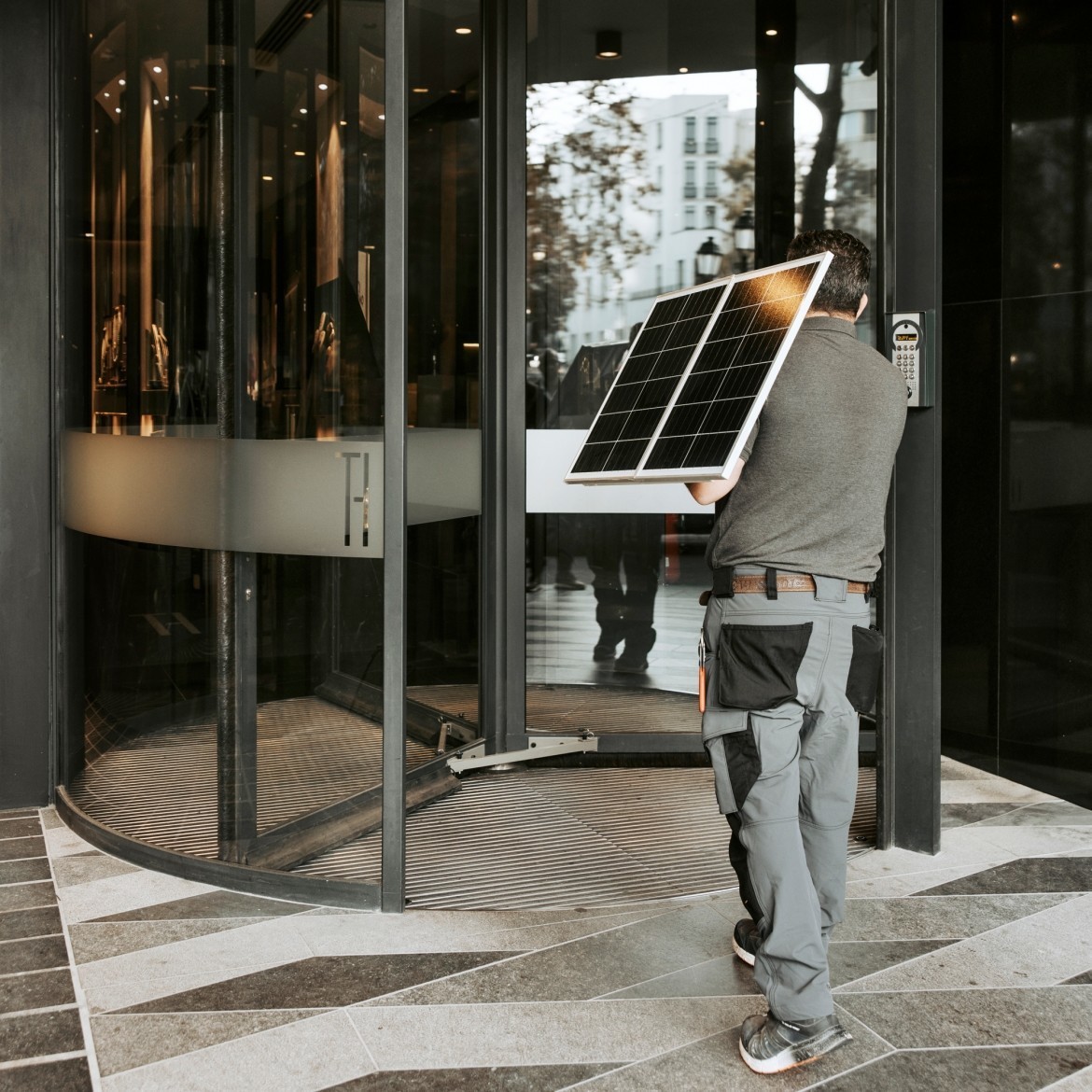Room Type: THE SUITE
Room Short Description:
Room Full Description:
Occupancy: 2 people
Bed Size: California King Bed
Dimensions: 125 m² / 1345 ft²
Pricing:
Amenities:
Experience Brussels from above
Situated between high-end fashion labels, the Sablon’s historic charm, and the lively heart of the city lies The Hotel. Towering over Brussels’ Uptown district, we’re not just any hotel in Brussels. We’re The Hotel. No wonder we have an eye for style and a reputation for safety and peace of mind.
Brussels is not what you think it is. There’s so much more to discover beyond the well-known tourist attractions. Whether you’re a regular visitor or it’s your first time in the city, there are plenty of hidden gems and secrets to uncover.
You’re in a city curated by us – the people who love it most. We see ourselves as your local guides, always happy to help you explore Brussels’ vibrant fashion, culinary, and cultural scene. We may even let you in on some undiscovered treasures. Come and see for yourself why we love Brussels so much.


urban spa & fitness
Located on the 25th floor, The Urban Spa by CODAGE offers a luxurious wellness experience with stunning views of Brussels. Enjoy personalized treatments, a hammam, saunas, hydrojet massages, and LED therapy in a serene, 400m² space. Open daily for hotel guests, with a day pass also available for external guests.
For a full wellness experience, visit our Urban Fitness on the 23rd floor, equipped with brand-new Technogym equipment for a revitalizing workout.
Meetings
Looking for an exceptional place to host a meeting? The Hotel Brussels is the ideal choice. With 12 flexible meeting rooms accommodating up to 400 people, we offer the perfect setting for any event. Plus, with 7 different room layouts, we tailor each space to suit your specific needs. Panoramic views guaranteed.

The Iris
Whether it’s breakfast, brunch, lunch, or dinner, The Iris offers the perfect setting in Brussels with relaxing views of Egmont Park. Looking for a drink? Enjoy a refreshing cocktail or a glass of Champagne at The Iris Bar, and unwind in style.
Brussels
The Hotel serves as a guide to Brussels, offering personalized recommendations to uncover the city’s best-kept secrets. From boutique shopping to cultural hotspots, we connect guests to the local vibe, ensuring their experience goes beyond the expected.
Sustainability
At The Hotel Brussels, sustainability drives our daily actions. Since 2019, we’ve reduced water, energy, and waste per guest night and earned key certifications like Green Key and BREEAM.
From eco-friendly systems and waste reduction to social initiatives and staff well-being, we’re committed to creating a greener, more responsible hospitality experience - for our guests, our people, and the planet.
